Why Customer Retention Rate is Important?
An effective customer retention strategy plays a crucial role in improving conversion rates. Learn why customer retention is so important for your...
Learn how to set up WhatsApp shopping for your business with our comprehensive guide. Implement and optimize this powerful tool to improve customer experience
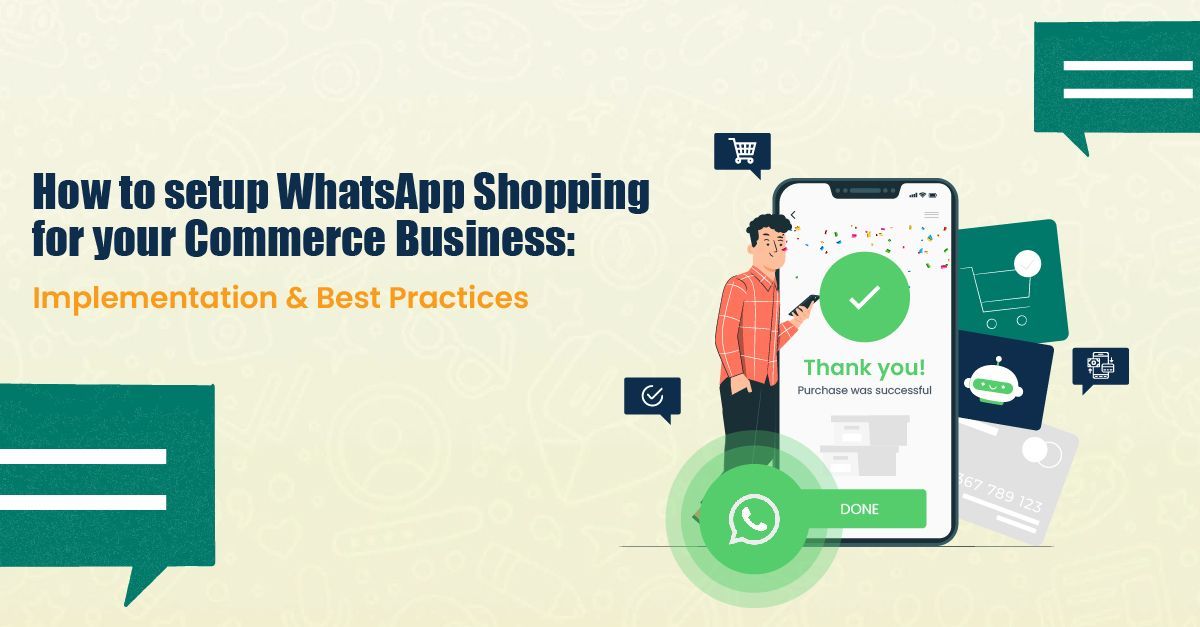
“Instagram and Facebook are the storefronts,” says WhatsApp Chief Operating Officer Matt Idema. “WhatsApp is the cash register.”
WhatsApp is getting down to business.
The messaging platform is coming up as a powerful channel to drive sales, marketing and support for consumer business across the globe.
Verified business accounts, catalogs, shopping buttons, business API, steadily the messaging platform has been adding delightful features that will ultimately put it at the centre of all interactions between a brand and its customers.
What are these features?
How can you use them to drive growth for your business?
Well, let’s dive in.
Read also WhatsApp Marketing: Campaigns & Examples
Here are some of the features you should explore:
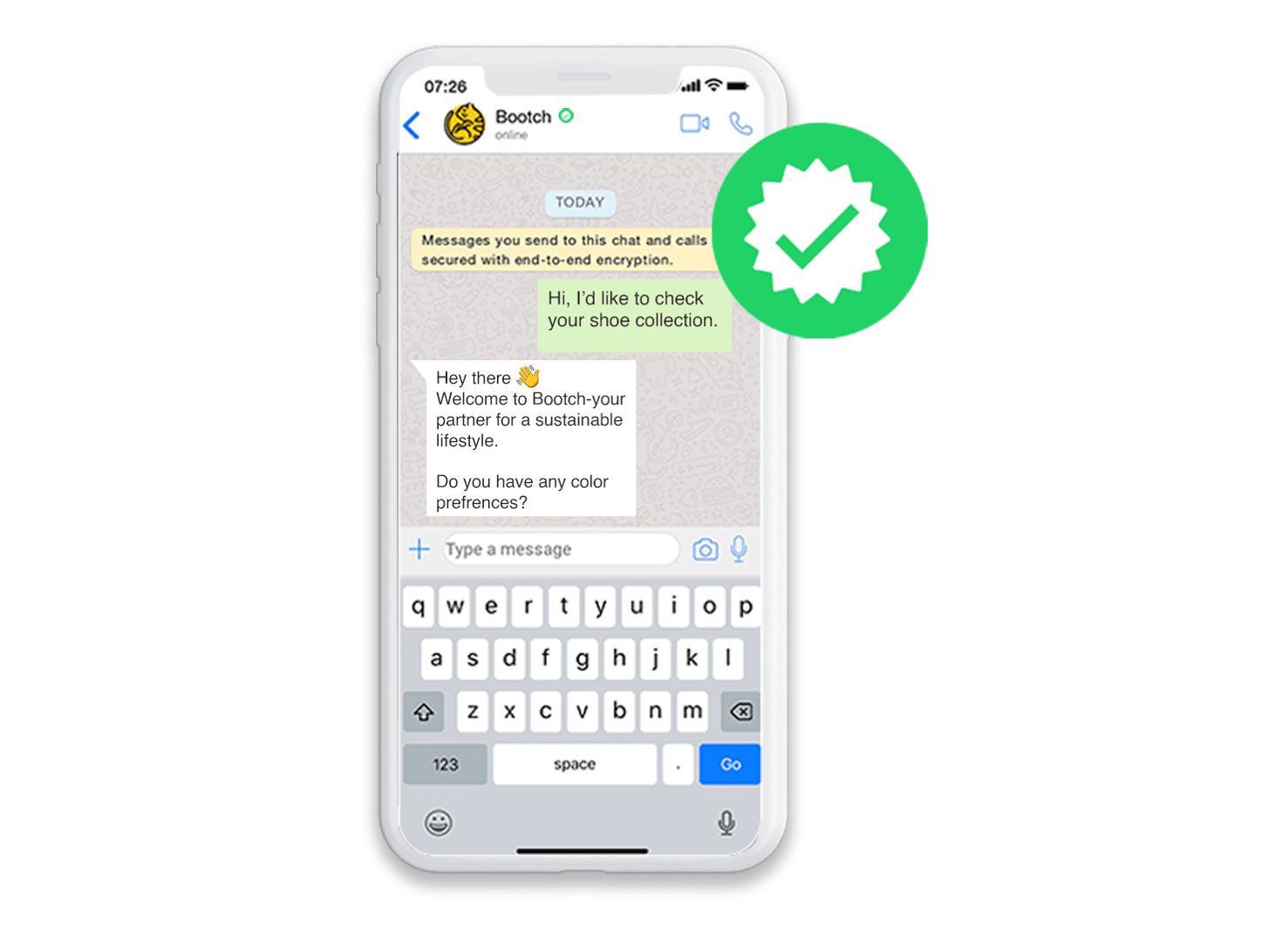
Gone are the days when you used to chat with your customers using your personal WhatsApp number. A WhatsApp business profile is your brand’s identity.
A verified profile creates a sense of trust for the shopper. You can add important information about your business - a snappy description, your email address, location, working hours, and your website details etc.
WhatsApp Business Accounts is mainly of two types:
Official Business Account: This type of business account is a notable and authentic brand recognized by WhatsApp. An Official Business Account has a green checkmark badge in its profile. The name of the business is visible even if the contact is unsaved.
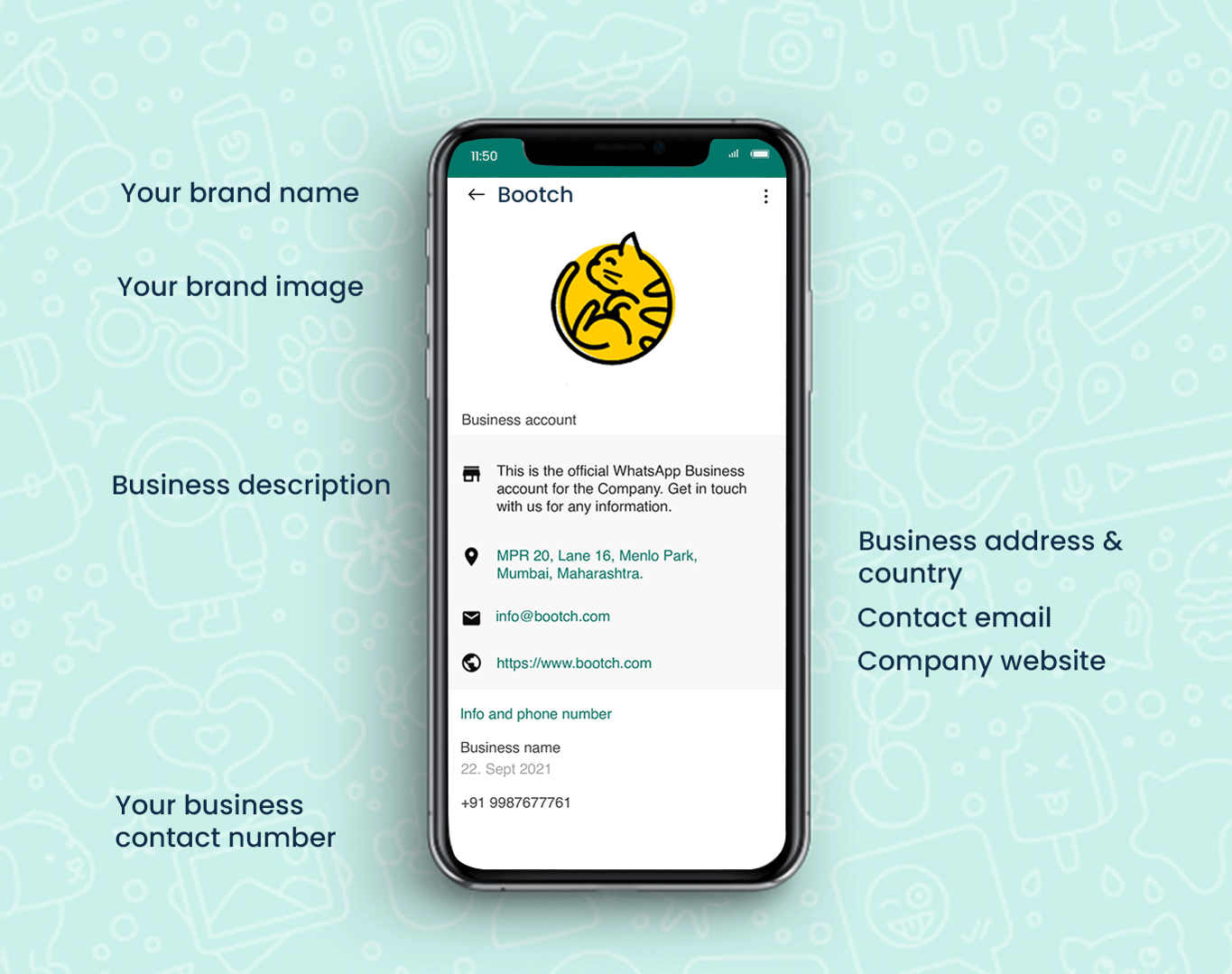
Business Account: This is the default account that you get when you download the WhatsApp Business App and register your number as a business contact.
Vizury works in close partnership with multiple WhatsApp BSPs and can get you verified number if you choose to use our WhatsApp shopping platform
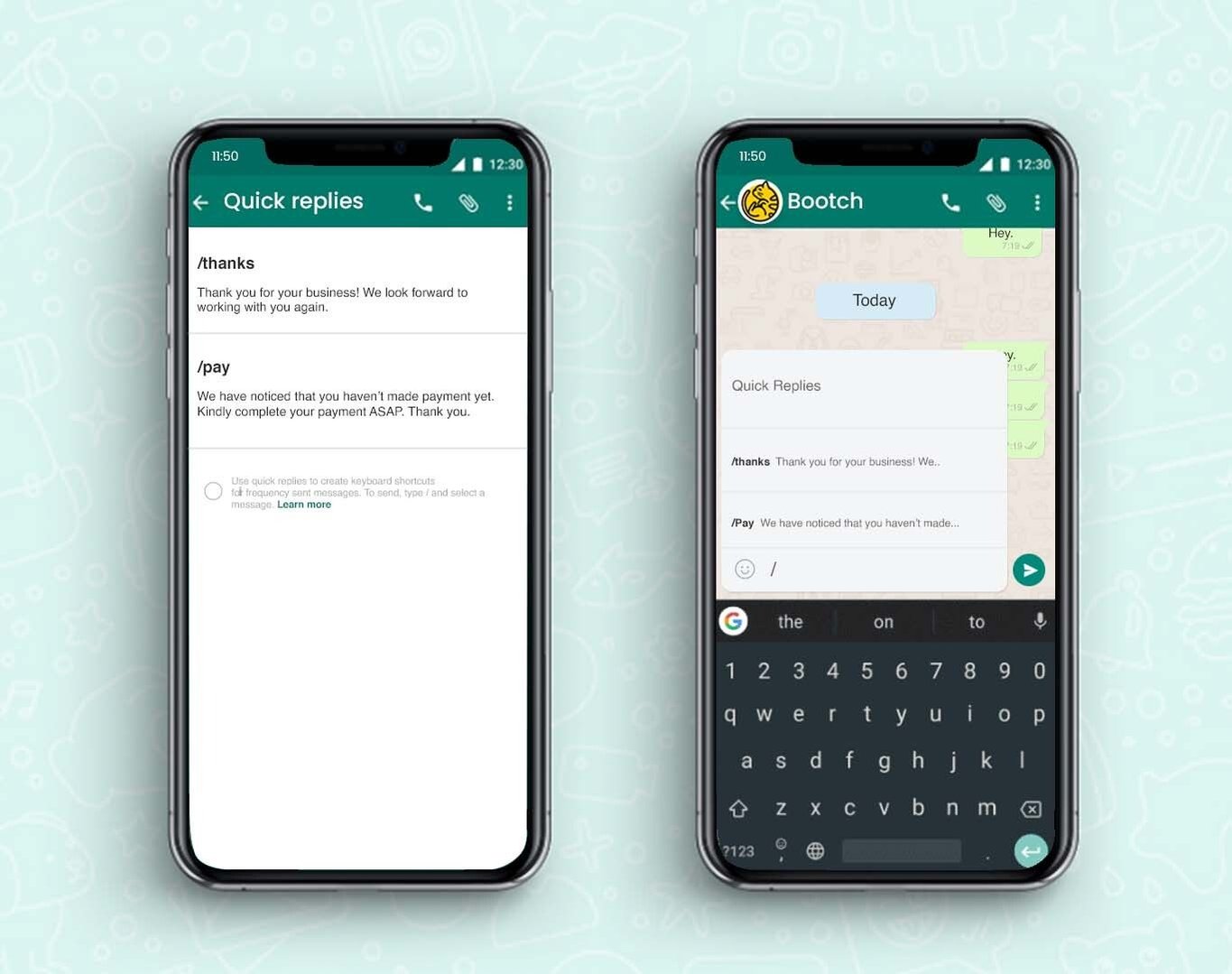
Quick replies allow you to send instant responses to customers. It also allows you to save time, reuse messages and enable efficient customer support.
For medium and large businesses, these responses can also be automated using the WhatsApp Business API solution and conversational AI solution that can enable a business to be available 24/7 for any kind of query or support without requiring human intervention.
Some examples of auto-replies can include:
WhatsApp Business also allows you to set automatic away messages. This is generated when a user initiates a conversation with your business. This automated feature allows you to welcome and introduce your business to a potential customer instantly.
Read also WhatsApp Promotional Messages: Guidelines and Use Cases
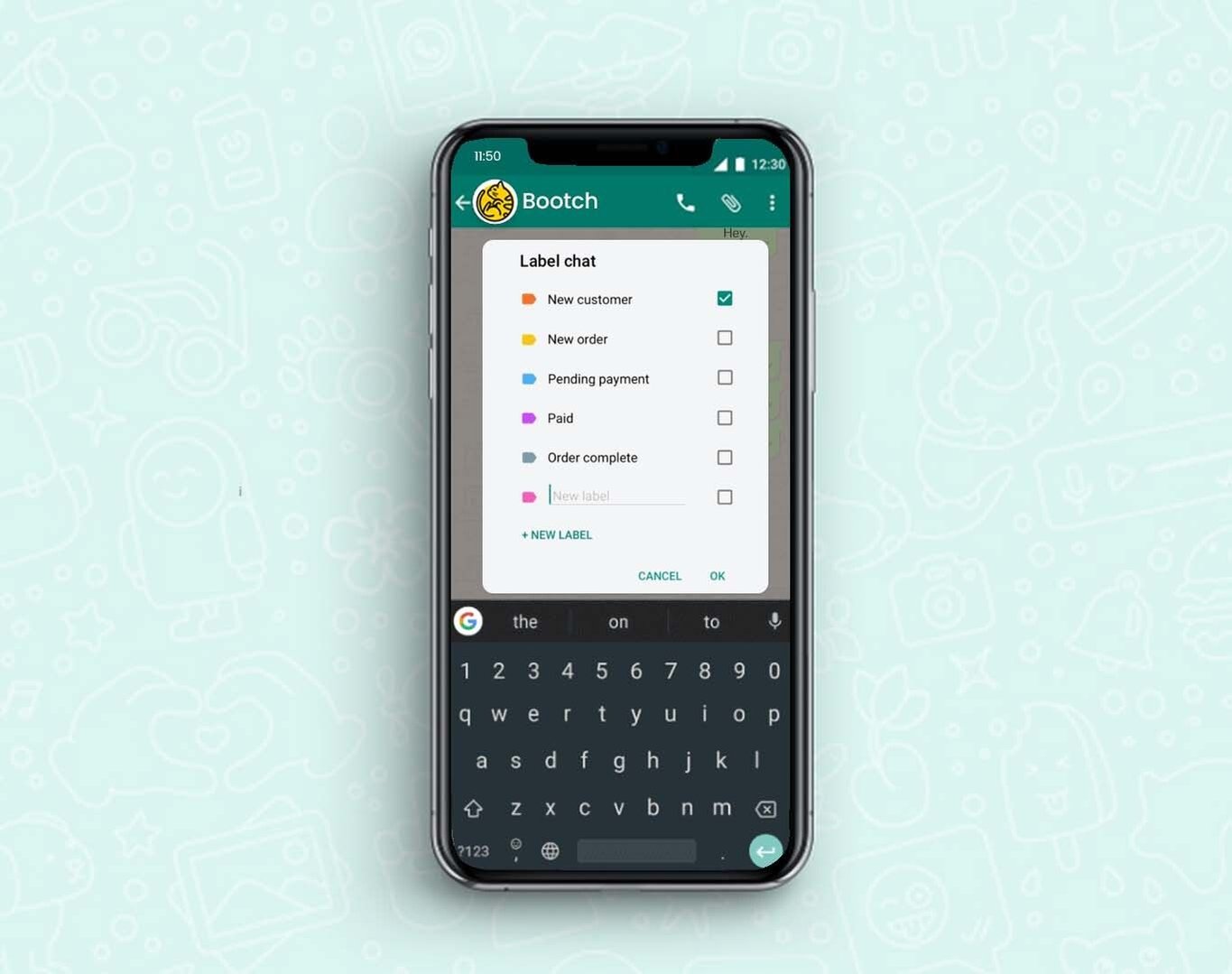
No one likes to drown under a bunch of messages
This is where labels come in handy!
Labels can help you easily organize and find your chats and messages.
For example you can use labels to indicate the status of your customer’s order. Or the type of customer. You can then send messages to a specific set of labelled people. For instance, you can send thank you messages to customers who have completed their purchases. In this case, this set of people may be labelled as “paid”.
You can add up to 20 labels to your WhatsApp Business Account. And it should be kept in mind that all contacts that you wish to label must be saved on your phone. Only then will you be able to send them a message.
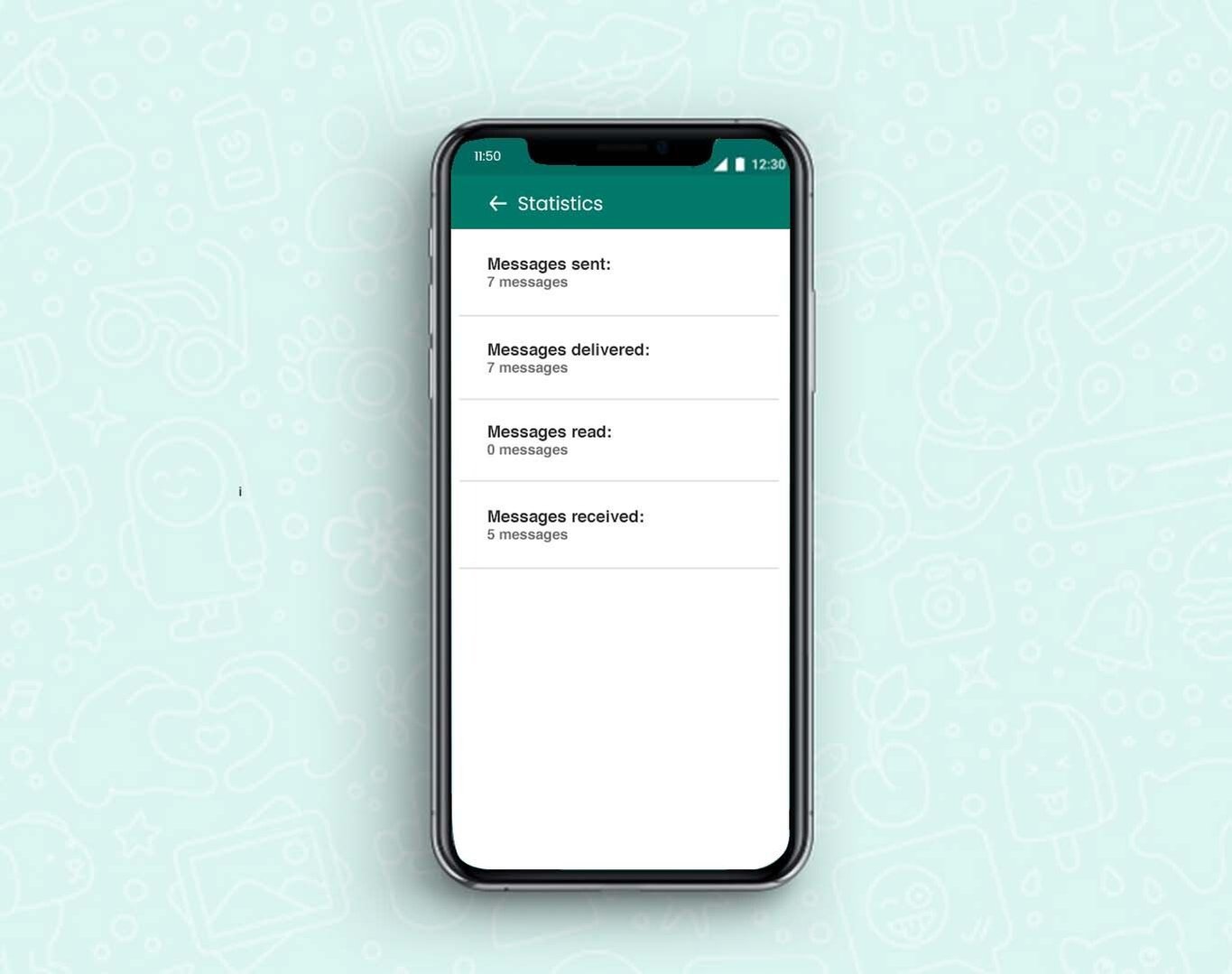
Statistics helps you understand and evaluate customer engagement and experience. This feature helps you to analyze how many messages are sent, delivered, read and received.
However, it should be noted that the default WhatsApp Business App (WABA) has numerous limitations, especially statistics. This limitation can be removed if you start using WhatsApp Business API. The API solutions provide more in-depth statistics such as how many website visitors have clicked on your WhatsApp widget, what chat events were completed, demographics of your visitors and more.
One of the most noteworthy features of WhatsApp Business is adding products to the catalog. It allows businesses to showcase all of their products on the chat app. With this advanced WhatsApp shopping feature, you can send specific items that the customers are actually looking for. For each item, you can add the price, description, and product code.
Here are some catalog features that you should know about:
How can you show thousands of products from your eCommerce store if there’s a limitation of showing 500 products? For larger brands Vizury Microstore is an advanced augmentation of WhatsApp catalogue.
Microstores are dynamic pages that auto display a selection of products that a particular shopper is interested in. So if you tell the chatbot that you would like to see large brown handbags, Vizury Microstore will pick only those from your entire collection and display them in a highly interactive catalog for the shopper to explore.
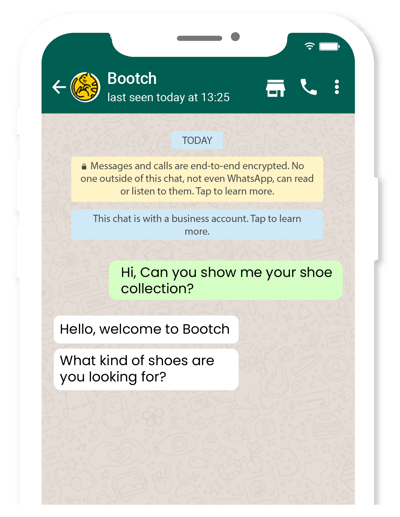
If there’s a product catalog, shouldn’t there be a shopping cart?
“Now, when a person sees the shopping button, which looks like a storefront icon, they will immediately know the business has a catalog so they can browse products and start a conversation about an item they see with just one tap,” said Facebook.
The WhatsApp shopping button can be accessed directly by the customer from chat. The two main requirements for accessing the button are:
Once you meet those requirements, the button will automatically pop up on the customer’s chat. Although the button is introduced, users can still access the catalog from the business profile. WhatsApp shopping is much more advanced with conversational AI solutions. Adopting these solutions deliver a more personalized experience to customers.
Read also Everything you need to know about conversation-based pricing on WhatsApp
You can set up interactive reply buttons to help your customers address their concerns via WhatsApp. Using conversational AI solutions can also help you make the chat flow more interactive and easier.
There are two types of buttons used:
Call to action button: This button redirects the user to a web page or phone number
Quick Reply: This button allows users to select predefined options instead of typing them out manually.
Users can conveniently choose the option they are looking for by using these interactive buttons. You would need a developer’s help to set up reply buttons. You can follow the steps here.
In addition to this, a recent June 2021 WhatsApp update allowed businesses to use list messages and reply buttons.
List messages: Add up to 10 options so that the customer can select the desired option instead of typing it manually.
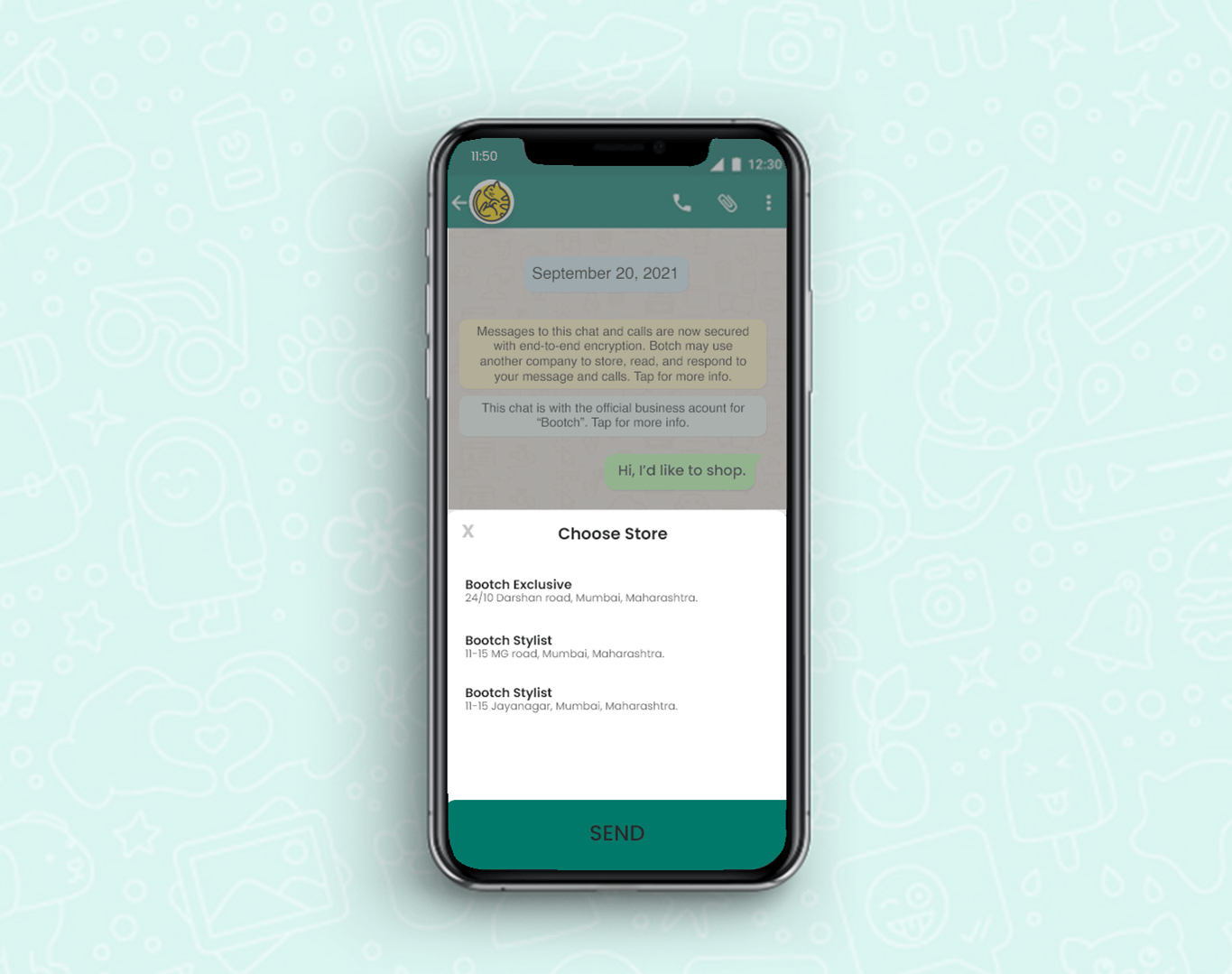
Reply buttons: Add 3 options for your customer to choose their desired option. Some of its uses may include requesting a return or choosing a payment option.
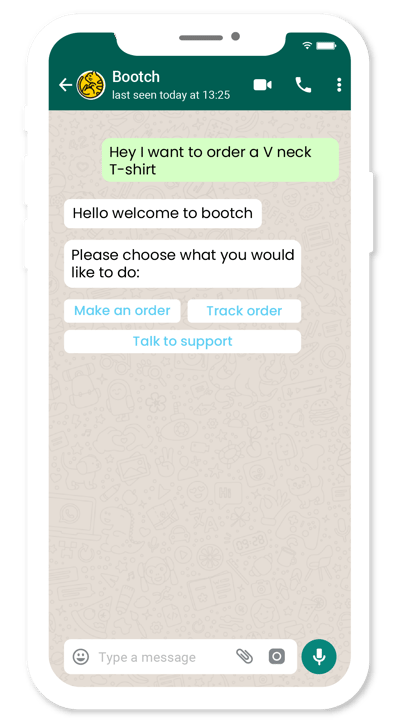
Some of the specifications that must be kept in mind:
The main purpose to use WhatsApp is to build a loyal community and increase customer retention. There are several ways through which you can increase your sales using WhatsApp Shopping. They are as follows:
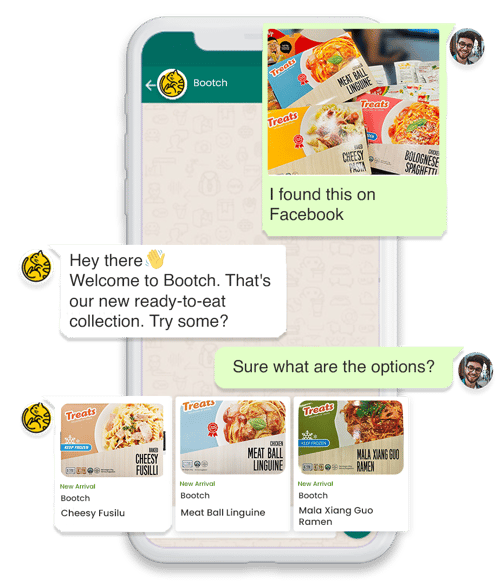
WhatsApp marketing offers ample opportunities to acquire new customers. However, it may be difficult to reach customers if they aren’t aware that your business is on WhatsApp. One of the best ways to acquire customers is to run click to WhatsApp ads on Facebook. This ad is designed to drive customers to your WhatsApp Business Account and start a conversation. Conversational AI tools can help you engage with customers over WhatsApp to complete their purchases.
Learn more about Click to WhatsApp Ads
Some of the other ways to acquire customers can include:
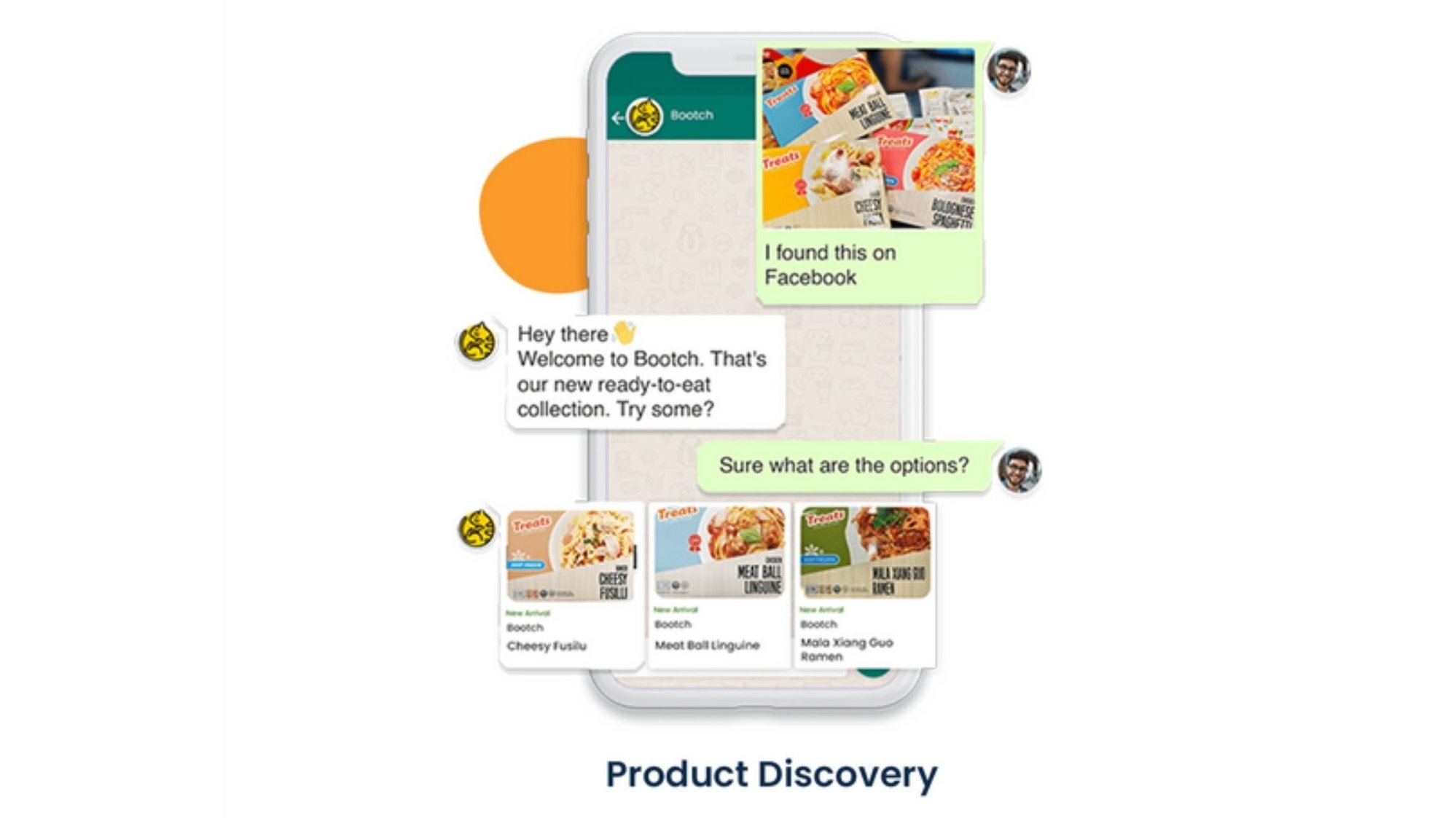
You can capture their phone number and name to add to your database once the customer starts conversing with your business. Upon conversing, your business can help customers discover products from your store.
Conversation AI solutions allow the NLP powered chatbot to understand what the shopper is looking for and shows them relevant products. You can also send product recommendations in real-time while a customer is shopping. For instance, a customer is looking for a dress from your store. Upon purchasing the dress, the bot will automatically send product recommendations such as shoes or jewellery that matches the outfit. Thus, increasing your AOV.
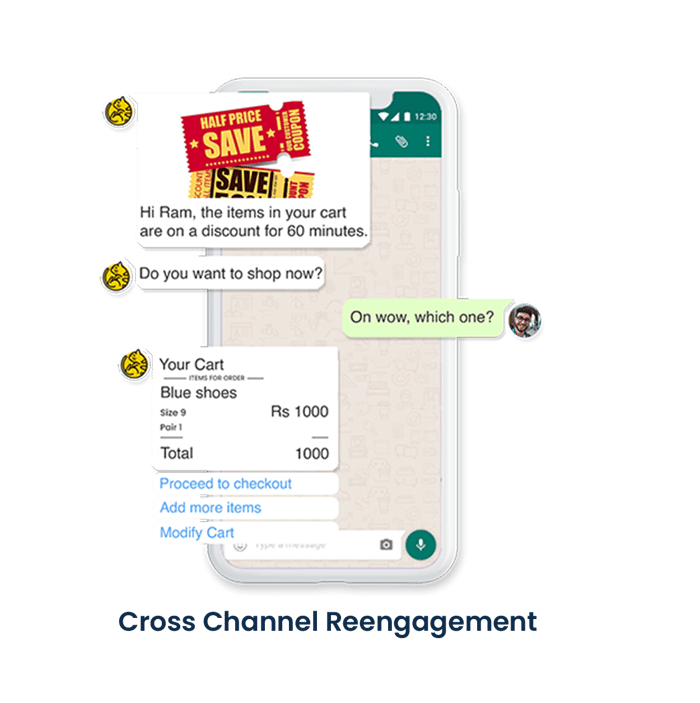
In case the customer drops off mid-conversation, you can re-engage by incentivizing them and using discount codes and promotional offers. For instance, if a customer showed interest in buying a shoe from your store and dropped off mid-conversation, you still have a 24-hour window to incentivize them to complete the purchase. Brands can also continue with post-sale engagement by using incremental product recommendations or transactional messages.
Read also A Comprehensive Guide to Omnichannel Retail
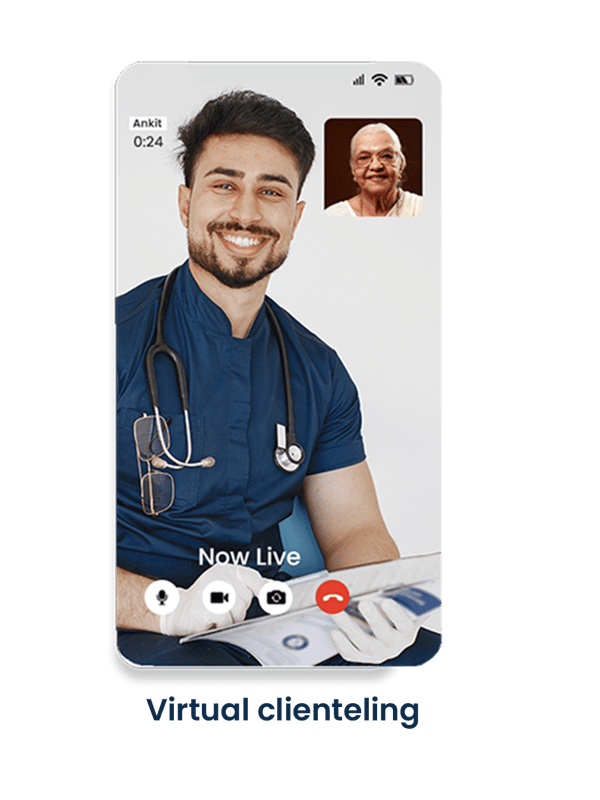
Clienteling is a way through which brands engage with shoppers to provide a personalized service. Conversational AI solutions like Vizury allow businesses to adopt virtual clienteling as a viable option to drive sales and provide a personalised service. Customers can connect with store staff instantly via text or video for any queries they may have.
In addition to this, the store manager will also have access to the shopper’s purchase history and shopping preferences to assist the customer better. In fact, clienteling helps build a long term customer relationship and has a tremendous impact on customer retention. For instance, Mckinsey and Company revealed that 80% of luxury sales were digitally influenced and that high-end spending online is expected to triple to $87 billion by 2025.
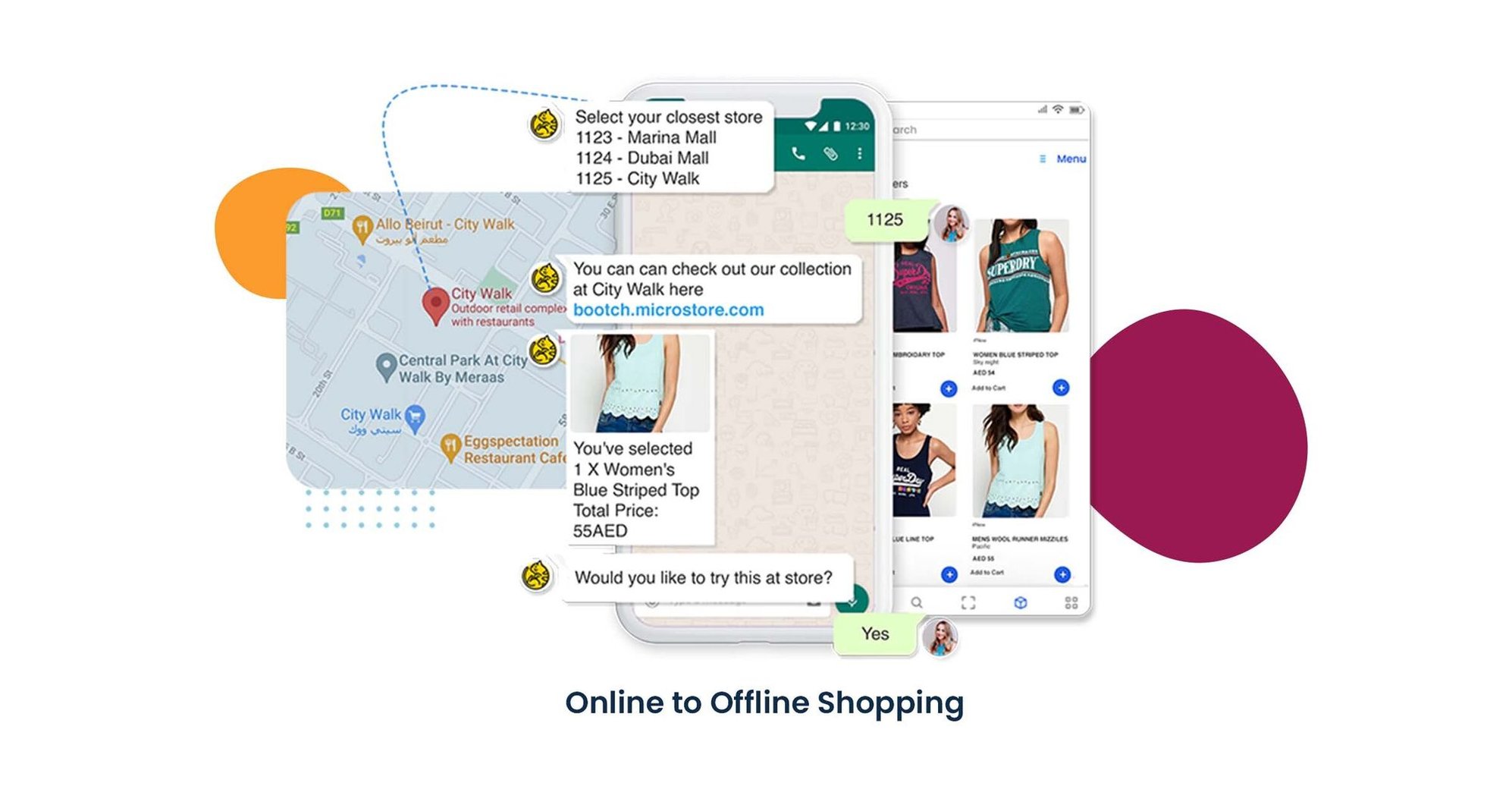
Online to offline commerce is an excellent way to drive your digital shoppers to your retail stores. WhatsApp can be your true ally when it comes to O2O. Using omnichannel solutions like Vizury, your business can help hyperlocal shoppers discover products, chat with store staff, reserve at store, click and collect or get home delivery directly from their nearest store.
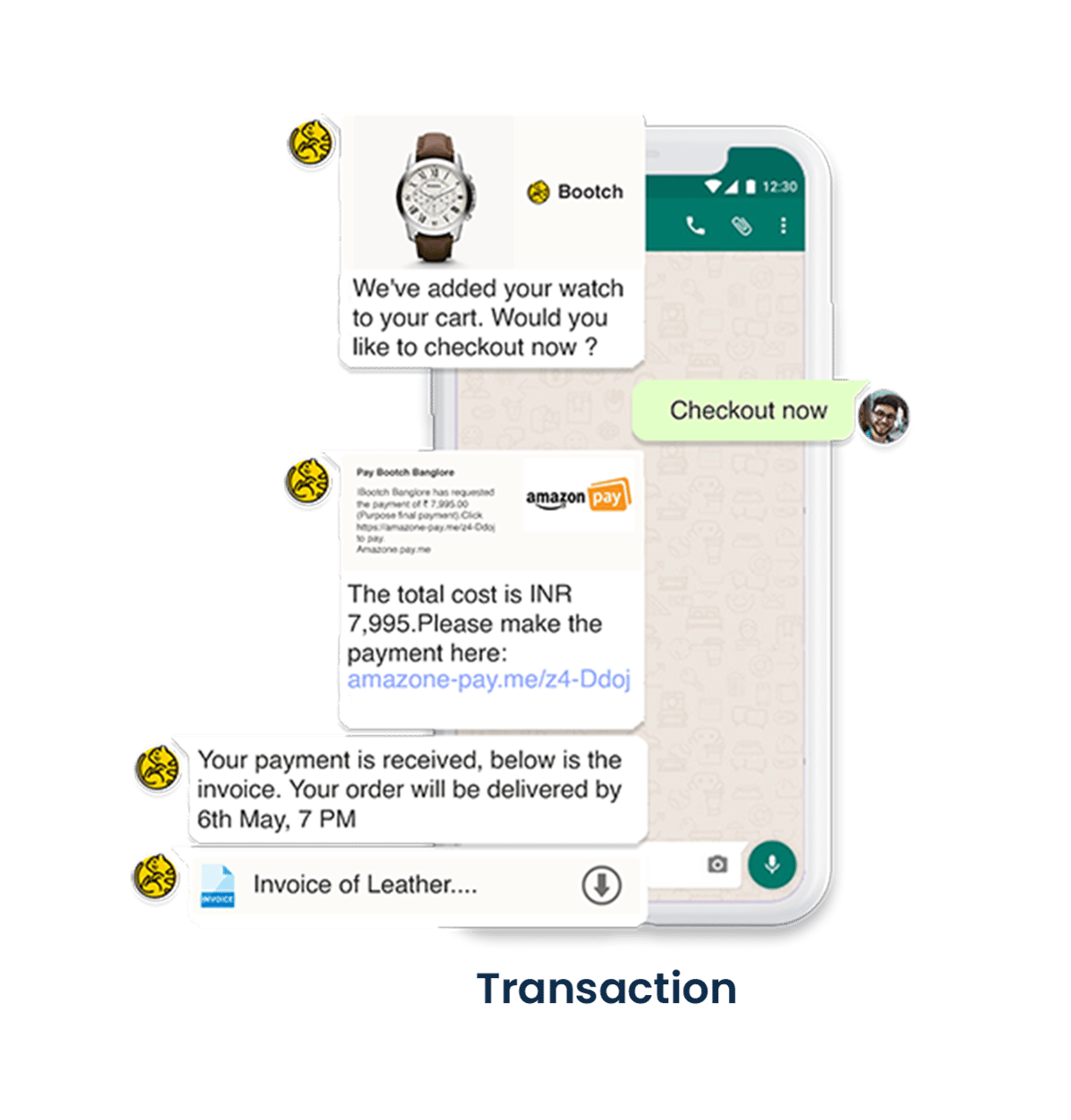
Brands can offer a wide range of options to make the purchase journey easy and efficient. Shoppers have the option to reserve products, buy online pick up at store or get products delivered at home. They can also do seamless transactions and purchase directly via chat.
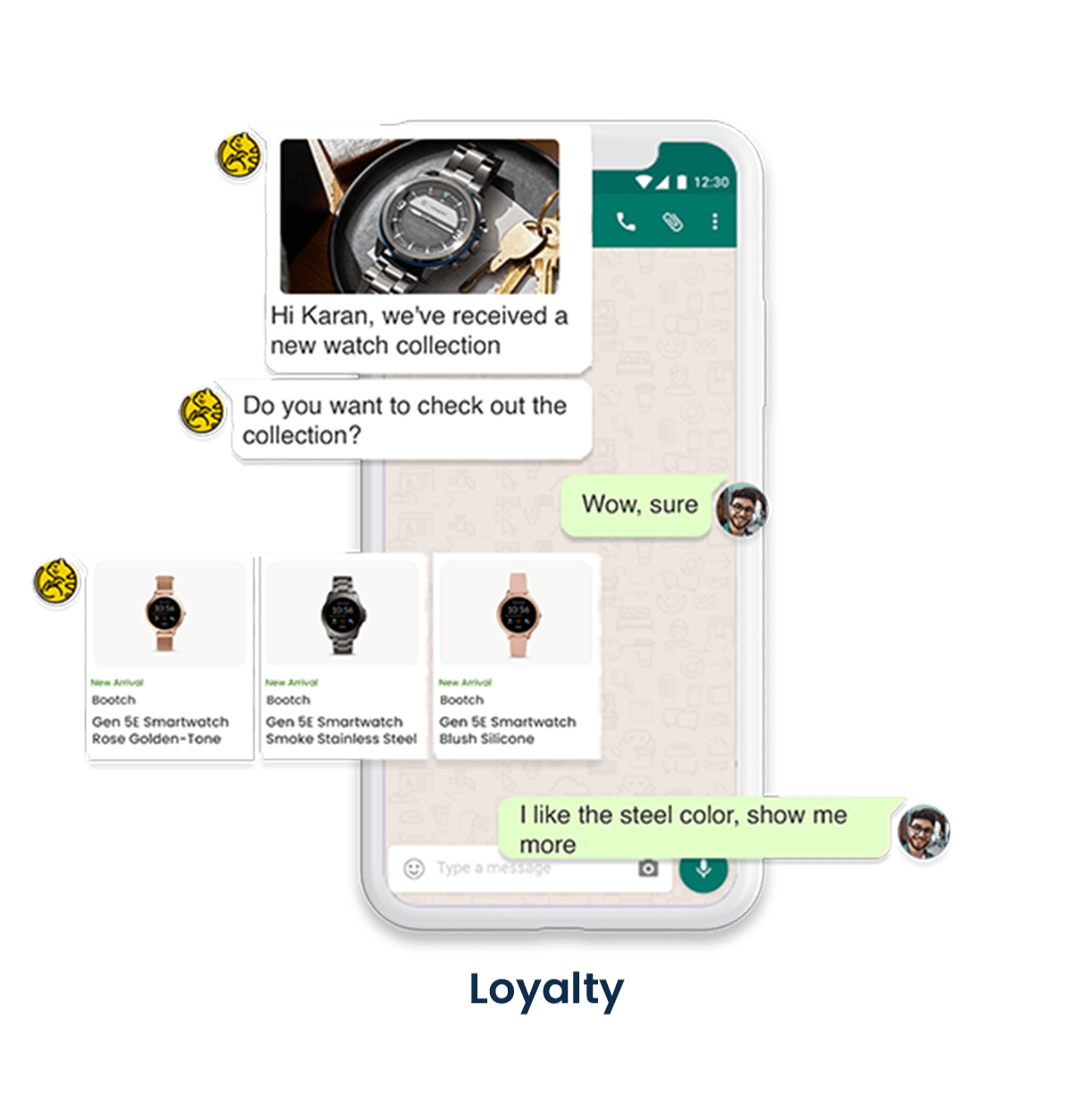
WhatsApp can also send notifications and alerts on new product launches or upcoming events to help businesses build customer loyalty. Stay in touch with your customers and automate notifications to high-value customers using conversational AI solutions.
WhatsApp Business allows you to reach your customers on a platform that they use on a daily basis. You can leverage the data you receive to personalize your customer’s experience and serve them better. WhatsApp business has the potential to truly personalize the way you interact with your customers that can ultimately help you to generate leads and drive sales.
An effective customer retention strategy plays a crucial role in improving conversion rates. Learn why customer retention is so important for your...
Learn what customer retention is, its metrics, and how businesses can create opportunities to improve customer retention and encourage repeat...
Learn everything you need to know about customer retention marketing. Build strong relationships that help you improve your retention rates
Be the first to know about new B2B SaaS Marketing insights to build or refine your marketing function with the tools and knowledge of today’s industry.